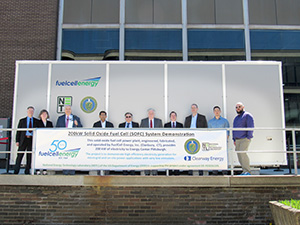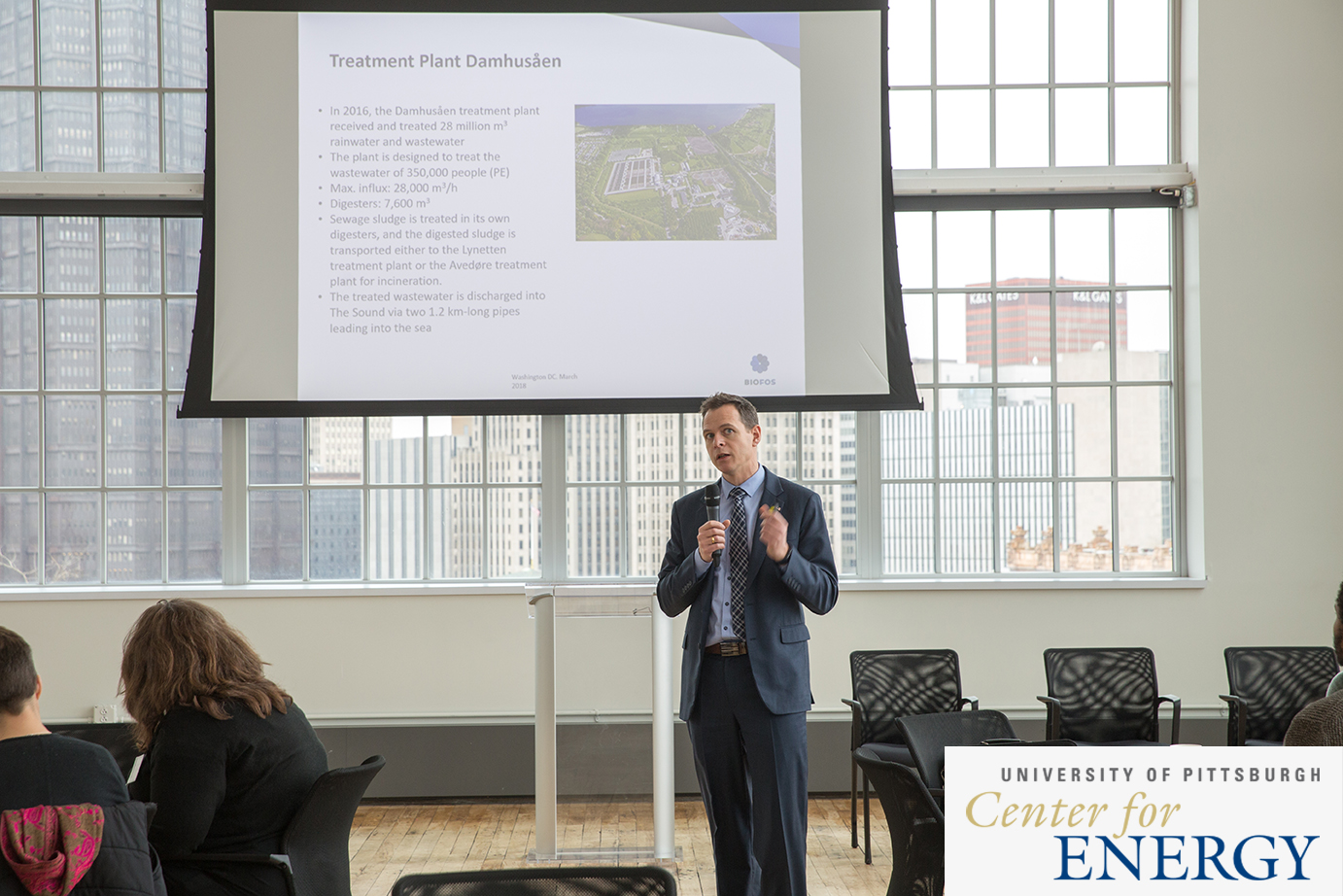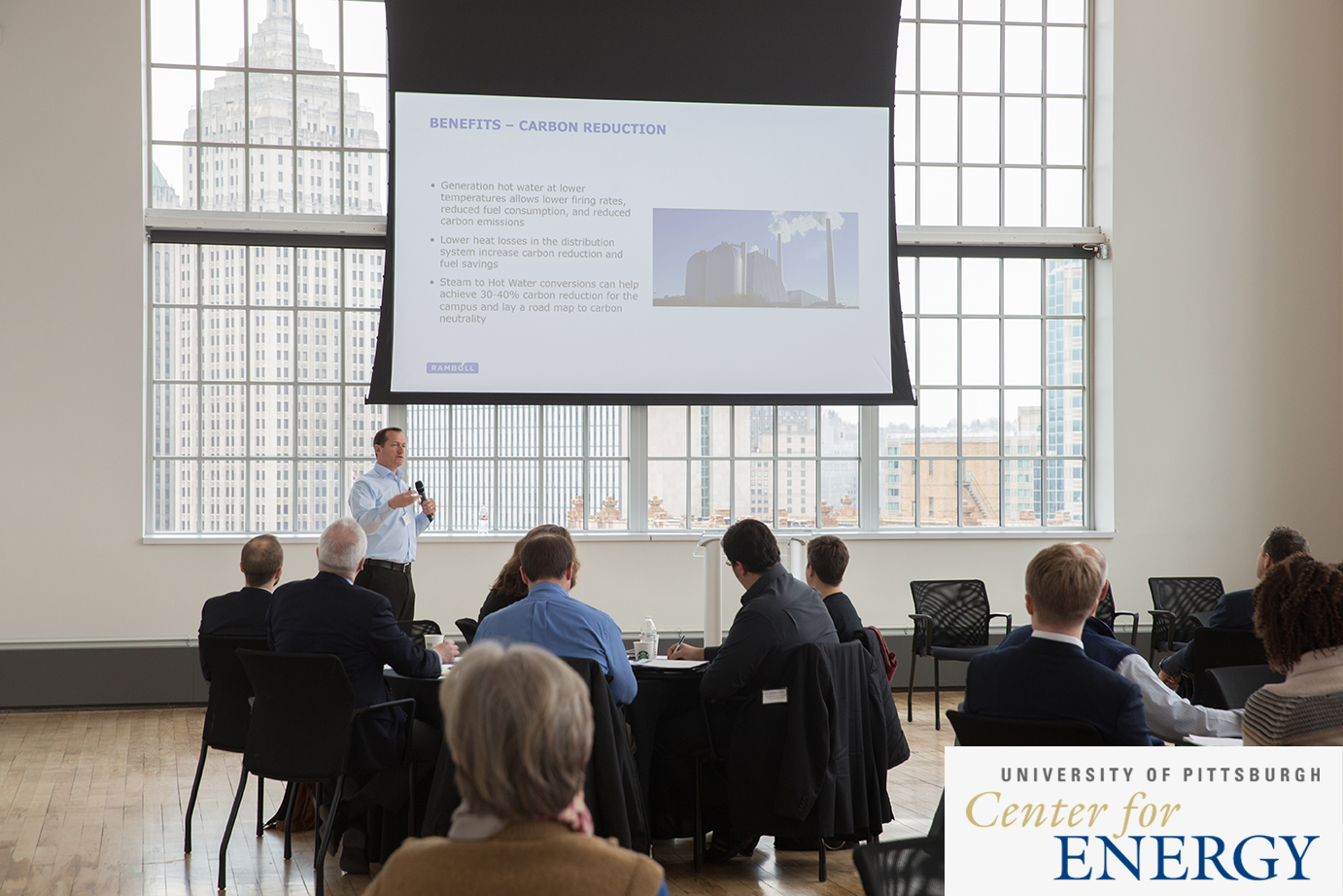-
Clean Energy Workforce: Needs and Opportunities for Southwestern PA *NEW*
Energy has been and continues to be a prominent feature of southwestern Pennsylvania’s economic portfolio. Now, federal and state initiatives are unlocking opportunities that build upon a decade of growth in our region’s clean energy sector, driving demand for workers and services and highlighting needs to strengthen Pennsylvania’s clean energy workforce development ecosystem.
Regional conversations with stakeholders, including convenings of the Clean Energy Workforce Roundtable, have taken place dozens of times in the past three years, enabling information sharing about current initiatives taking place in the region’s clean energy industry, identifying needs, and promoting collaborative next steps for priority issues. The work underscores the need to continue developing a comprehensive regional strategy to decarbonize southwestern Pennsylvania and create the energy economy of tomorrow.
This document includes advice passed along during conversations with Roundtable participants, insights gleaned from expert presentations on regional workforce research, and written notes collected after facilitated brainstorming activities on the region’s workforce development needs.
- Partnering for the Future: Leadership, Innovation, and Proven Solutions
Partners working with the U.S. Department of Energy (DOE) in the Better Buildings Initiative set ambitious goals and contribute the kinds of real-world energy, water, and waste solutions that are accelerating our future toward a clean energy economy. Through their leadership and commitment to transparency, partners demonstrate effective strategies to help address our climate emergency, create jobs, and promote healthy, safe, and thriving communities.
This past year, building owners and plant managers faced significant new barriers to energy efficiency caused by the COVID-19 pandemic. These challenges included dramatic fluctuations in occupancy levels, the need for increased ventilation, the repurposing of budgets, and layoffs and staffing disruptions. Despite these difficulties, many partners continued to prioritize energy efficiency and found ways to meet the challenge of operating during a pandemic, while taking advantage of reduced occupancy in buildings and plants to make upgrades.
-
Achieved Impressive Energy and Cost Savings
The 950+ private and public sector Better Buildings partners have collectively saved more than 2.2 quadrillion British thermal units (QBtu) of energy since the start of the program. This amounts to a savings of more than $13 billion and 130 million tons of CO2 . Partners also have reduced their water use by more than 10.2 billion gallons.
-
Shared Solutions and Collaborated to Overcome Barriers
Partners shared portfolio-wide, clean energy strategies and real-world solutions with the marketplace. Best-practice efficiency measures that have been implemented in buildings and plants are highlighted in peer-to-peer events and featured in the tools, in-plant trainings, and other resources distributed by DOE.
-
Advanced Innovative New Technologies
Partners tested, validated, and helped disseminate new energy-, water-, or waste-saving technologies in their buildings and plants. They participated in technology campaigns led by experts from DOE's National Labs and signed up for technical field validation studies.
-
Embraced New Opportunities
Many partners have also set waste and water reduction goals to complement their energy reduction commitments. Additionally, more than 50 partners joined a pilot effort to demonstrate pathways to achieve low carbon emissions from building and manufacturing operations by leveraging on-site and off-site renewables and other low carbon energy generation options.
Date: May 17, 2021
Author: U.S. Department of Energy (DOE)’s Better Buildings Initiative
- Pittsburgh Public Facilities Electric Vehicle (EV) Charging Strategic Plan.
The purpose of creating this strategic plan is to:
- Enable the City to sustainably expand access to public EV charging citywide to increase EV adoption at the level necessary to meet the City’s climate goals.
- Provide a strategic framework for prioritizing public facilities, streamlining the process for pursuing grants and other opportunities to expand public EV charging on City property.
- Develop a multi-year strategic plan for EV charging installation and operations in public facilities, including recommendations on targets, siting prioritization, financing, policy, and operations.
- Develop a sustainable funding mechanism that can leverage a small amount of City budget investment and/or charging revenues to attract utility, state, and/or federal grant opportunities.
- Establish roles and responsibilities across City departments and the Pittsburgh Parking Authority for EV charging planning, installation, operations, and maintenance in public facilities.
The strategic plan and its recommendations will be implemented and updated over time as needed by The City’s Electric Vehicle Task Force.
The scope of this plan expanded from its initial focus on Pittsburgh Parking Authority (PPA) facilities to also include other public-facing City facilities such as parks and recreation centers, primarily to enable an increased focus on improving Citywide access to public EV charging, including in areas without Parking Authority facilities. Additionally, the plan addresses opportunities to partner with stakeholders to drive private investment in EV charging, and discusses potential options for pursuing curbside charging in the future.
Date: April 19, 2021
Author:City of Pittsburgh Department of City Planning in collaboration with Bloomberg Philanthropies American Cities Climate Challenge and the Pittsburgh Parking Authority
-
Pennsylvania 2020 Clean Energy Employment Report
The Pennsylvania Department of Environmental Protection (DEP) works to protect the state’s air, land, and water from pollution; restore these natural resources; and provide for Pennsylvanians’ health and safety through a cleaner environment. Advancing this mission, the DEP Energy Programs Office is the primary entity under the Governor’s jurisdiction responsible for programs that promote knowledge and use of energy efficiency and energy conservation technologies as well as indigenous, clean, alternative fuels, including energy production and use technologies.
One of the core functions of the Energy Programs Office is to work with partners to gather data and develop resources to help policy makers, planners, and other leaders in Pennsylvania make informed and best-outcome energy decisions. To provide a foundation on which to understand future energy employment changes and base energy employment decisions, the Energy Programs Office commissioned BW Research to conduct a baseline analysis of Pennsylvania’s clean energy workforce from 2017 through 2019. This is the 2020 Pennsylvania Clean Energy Employment Report.
This report details employment in the clean energy sector, as defined by the Energy Programs Office. Clean energy jobs are categorized into the following five major technology sectors: Energy Efficiency, Clean Energy Generation, Alternative Transportation, Clean Grid and Storage, Clean Fuels.
Date: August 17, 2020
Author: Commissioned from BW Research by the DEP Energy Programs Office
-
Community Resilience Planning and Clean Energy Initiatives: A Review of City-Led Efforts for Energy Efficiency and Renewable Energy:
Cities are global hubs of economic activity and energy consumption, accounting for 66% of energy use and 70% of CO2 emissions. All of them rely on the uninterrupted flow of energy to function properly. However, climate change is presenting them with an unprecedented array of risks, challenges, and disruptions. In response, cities are actively planning to improve energy efficiency and promote renewable energy to make their neighborhoods more resilient in the face of climate change as well as other shocks and stresses.
This American Council for an Energy-Efficient Economy (ACEEE) report details their study that reviewed and rated 66 plans selected from the 100 Resilient Cities international program. ACEEE identified the energy efficiency and renewable energy initiatives that cities commonly include in their plans. They also identify and discuss opportunities that cities have missed to improve their energy efficiency and increase their reliance on renewable energy.
The Key Takeaways from this report are:
- Climate change is the primary driver of clean energy initiatives in community resilience planning.
- While most city resilience plans include at least one energy efficiency initiative, only about a quarter of them include a larger, comprehensive set of initiatives.
- Cities with comprehensive energy efficiency initiatives also tend to have comprehensive renewable energy initiatives.
- Cities without robust sets of energy efficiency and renewable energy can emulate and adapt the clean energy initiatives included in the resilience plans of leading cities.
-
Date: January 2019
Author: Metropolitan Policy Program at Brookings (Robert Maxim and Mark Muro)
-
IDEAS for PENNSYLVANIA INNOVATION: Examining efforts by competitor states and national leaders:
This Brookings Institution report documents ongoing initiatives, both nationally and in other states, that are contending with challenges similar to those that Pennsylvania’s innovation economy is facing.
The initiatives range from those that address a narrow problem or leverage relatively few public resources to those that require substantial time, financial resources, and or/political will to enact. While Pennsylvania’s innovation economy has lagged in recent years, a path is ahead that leads to renewed commitment to inclusive innovation-oriented economic development. Pennsylvania can build upon the initiatives in this report to invest in a state-wide innovation strategy that leverages industry R&D and state resources.
Date: August 2019
Author: Metropolitan Policy Program at Brookings (Robert Maxim and Mark Muro)
- Create an evidence-based state innovation strategy
- Strengthen business R&D in the state
- Bolster state investment in early-stage financing
- Mitigate significant spatial divergence






